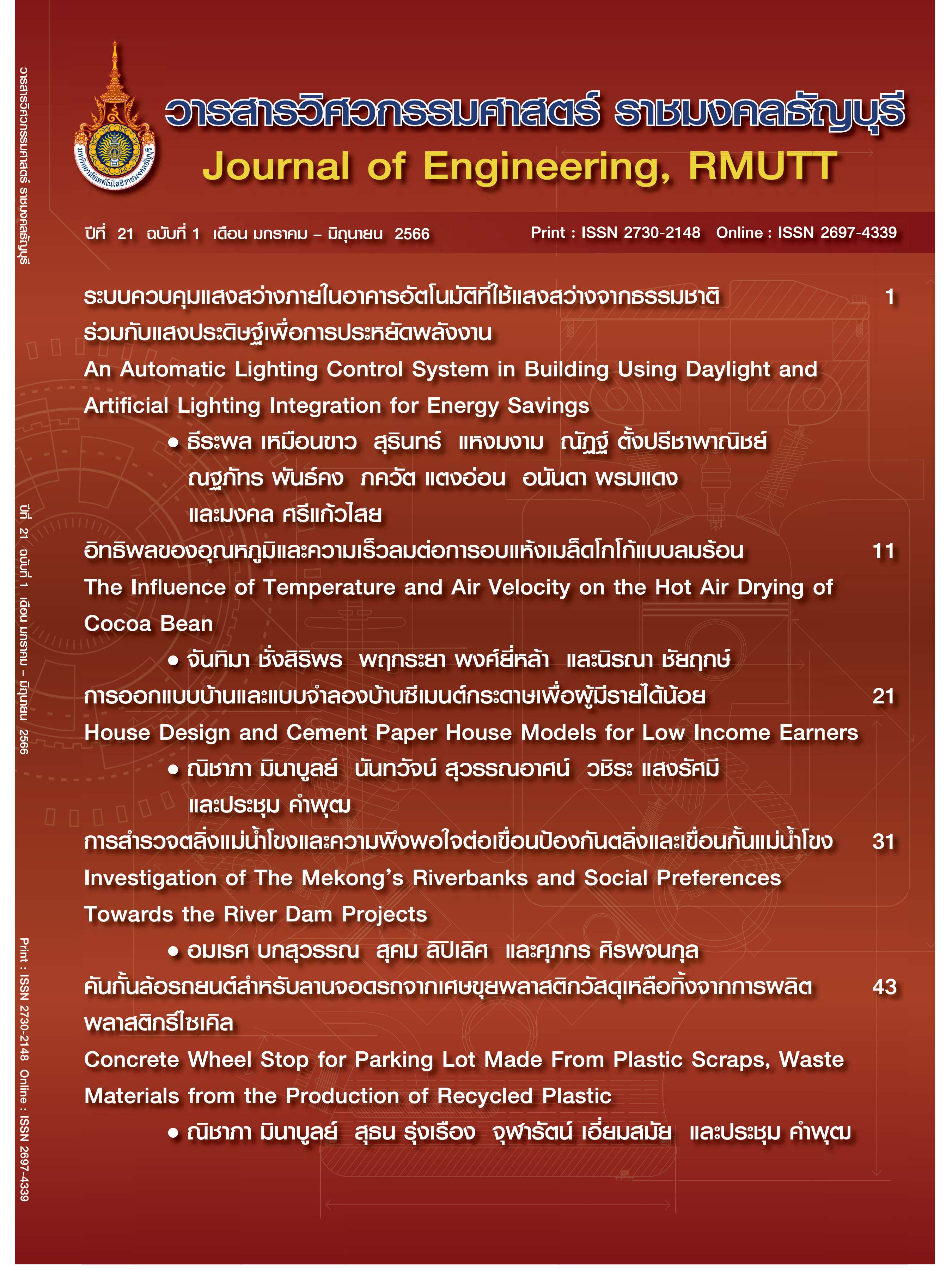Concrete Wheel Stop for Parking Lot Made From Plastic Scraps, Waste Materials from the Production of Recycled Plastic
Main Article Content
Abstract
This research is to study the concrete wheel stopper for the parking lot from plastic scraps, a waste material from the production of recycled plastics. By using the ratio of cement: sand: crushed stone equal to 1: 2: 4, using plastic fluff instead of stone in the ratio of 0%, 25%, 50%, 75% and 100% by weight. Test the compressive strength at age 7, 14, 21, and 28 days. The results showed that using plastic scraps to replace stone in the ratio of 50% was the best ratio, which was able to obtain the compressive strength of 214.52 ksc with average water absorption of 5.67%, with an average dry density of 1,932 kg/m3 and is 19 kg lighter than the pieces that are generally sold in the market. In terms of the cost price found that the used of plastic scraps is cheaper than the concrete wheel stop that is generally sold in the market about 773 baht per/piece (excluding cost transportation) and when bringing this product to testing the toxicity properties at the Department of Science Service found that the content of cadmium (Cd) and lead (Pb) was 0.0001 mg/L, considered passing the standard of heavy metals, not harmful to product users.
Article Details

This work is licensed under a Creative Commons Attribution-NonCommercial-NoDerivatives 4.0 International License.
The manuscript, information, content, picture and so forth which were published on Frontiers in engineering innovation research has been a copyright of this journal only. There is not allow anyone or any organize to duplicate all content or some document for unethical publication.
References
Pollution Control Department. Information on municipal solid waste. Supporting documents for the preparation of the Environmental Quality Situation Report; 2021. (in Thai)
Office of Natural Resources and Environmental Policy and Planning. Environmental Quality Situation Report. Bangkok; 2019 (in Thai)
Kittima W. Department of Physiology. Faculty of Pharmacy Mahidol University Plastic products and food. Article disseminating knowledge to the public; 2012. [sited 2019 Dec 17]. Available from: https://www.pharmacy.mahidol.ac.th/th/knowledge/article/86/Plasticproductsandfood/
Department of Environmental Quality Promotion. Discipline Building Manual for Sustainable Waste Management. Department of Environmental Quality Promotion, Ministry of Natural Resources and Environment; 2014. (in Thai)
Thai Industrial Standards Institute. Standard for Analytical methods for food contact plastics (Tis no. 656-2556). Ministry of industry; 2013. (in Thai)


